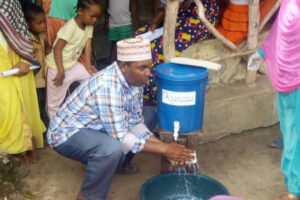Arusha. The Alliance for a Green Revolution in Africa (Agra) has awarded a grant of $399,900 (Sh1.09 billion) to The East African Business Council (EABC) to promote intra-East African Community (EAC) agri-food cross-border trade.
This three-year project will focus on benefiting 2,440 youth and women involved in cross-border trade.
Funded by the Mastercard Foundation and the Bill and Melinda Gates Foundation (BMGF), the new initiative, titled “Promoting Intra-EAC Agri-Food Cross-Border Trade by Addressing Non-Tariff Barriers (NTBs) to Trade,” will be implemented in collaboration with the Tanzania Chamber of Commerce, Industry, and Agriculture (TCCIA).
The project aims to enhance food security, increase employment opportunities for youth and women, and boost farmers’ incomes across key East African trade corridors, including Taveta/Holili, Malaba, Busia/Elegu, Serari, Kibirizi/Kigoma, Mutukula/Kagera, and Tunduma/Mbeya.
According to a statement from EABC, the partnership is designed to increase the participation of women and youth-led agri-food traders and to amplify the volume of trade in key products such as maize, maize flour, rice, beans, soybeans, and horticulture.
“The three-year project will empower approximately 2,440 youth and women-led cross-border traders by addressing non-tariff barriers to reduce the cost and time associated with trading agri-food products,” the statement noted. “We will provide training on using trade facilitation tools such as the Simplified Trade Regime (STR) and trade portals, and establish digital trade information booths at border points.”
The grant from Agra, supported by Mastercard Foundation and BMGF, will enable EABC to lead efforts in resolving trade barriers through public-private dialogues at border points. Additionally, an annual assessment will track progress through the development of an EAC NTB Index (NTBI).
Governments involved will play a crucial role by engaging in dialogues and adopting reforms based on the findings from case studies and the NTB Index.
This partnership reflects a significant step towards enhancing regional trade and economic integration within East Africa, with a focus on empowering women and youth in the agri-food sector.















